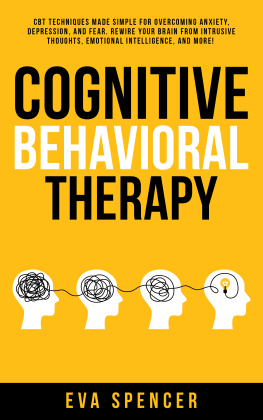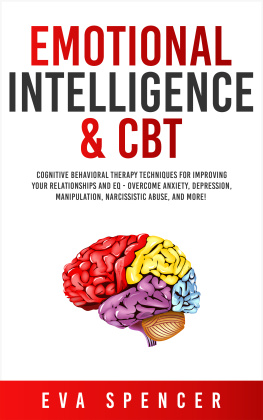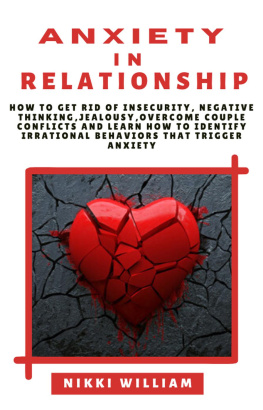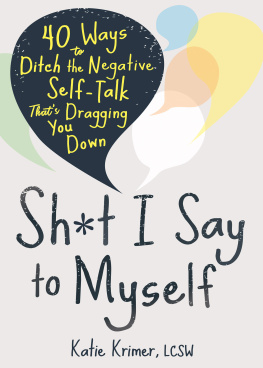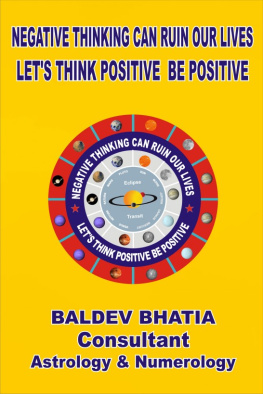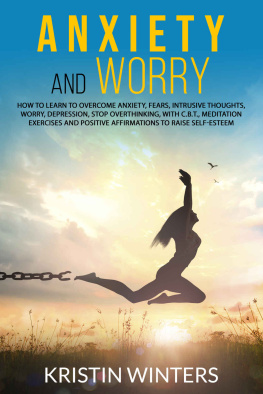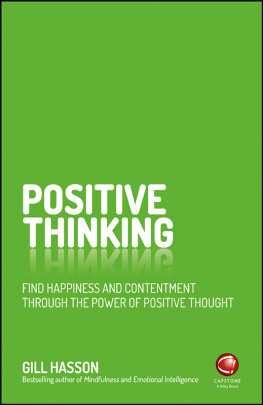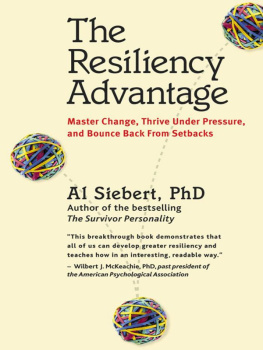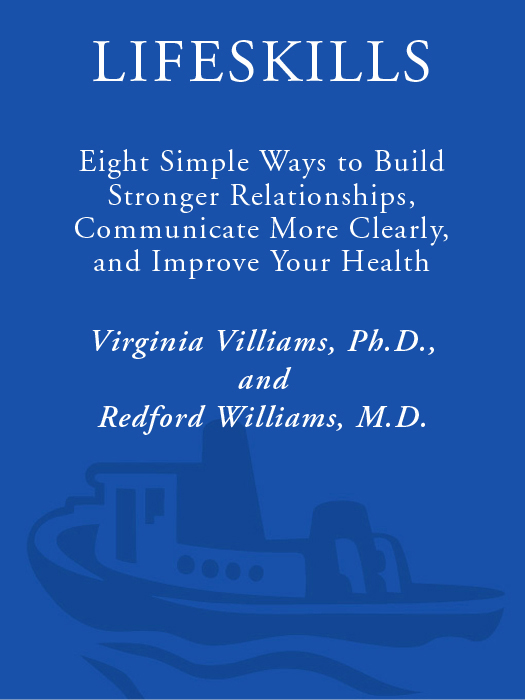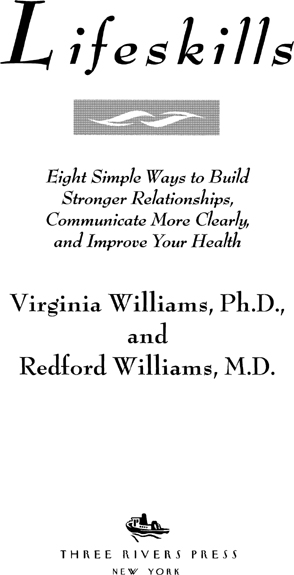By the authors
Anger Kills: Seventeen Strategies for Controlling the Hostility
That Can Harm Your Health
By Virginia Williams, Ph.D.
Surrealism, Quantum Philosophy, and World War I
By Redford Williams, M.D.
The Trusting Heart: Great News About Type A Behavior
Dedicated to Lloyd Pinckney Parrott (19071996)
Lloyd Parrott, Virginias father, was born on a farm. His mother died of tuberculosis when he was two years old. He was close to his father and helped him in the fields. When he grew up, he went away to college, never again to live on a farm.
Lloyd started a garden soon after his marriage to Elva, beginning by planting tomatoes. When they moved into a house several years later, he added lima beans, squash, green beans, corn, and peppers. He hoed and weeded contentedly, perhaps reminded of his beloved papa.
When Lloyd and Elva moved again, he planned his final garden, including fruit trees, turnip greens, cabbage, and broccoli. He later added strawberries, cantaloupe, watermelon, squash, pole beans, asparagus, raspberries, pecan trees, and an especially delicious variety of Fordhook lima beans. Seeds from the sweetest, juiciest cantaloupes got saved for next years planting. His produce was the best.
By now Lloyd was feeding not only his own family but all of his neighbors, with occasionally enough for others in town as well.
Though Lloyd and Elva had become affluent, they still lived modestly, except where opportunities for their two daughters were concerned. Despite Lloyds becoming a pillar in his community, his natural humility continued, reinforced by his deep practice of his religion. He continued to enjoy putting on his work clothes and shoveling dirt. He would shell his pecans before giving them to his daughters.
Lloyd grew older. At age eighty, the year he retired, he purchased a gas-powered rotary tiller to help with the deep hoeing. He dug up the peach trees and planted new fig trees to replace old ones.
Elva developed osteoporosis, requiring him to assume much of the housework and to care for her.
Maybe I wont have a garden this year.
Oh?
It depends on how your mother is feeling.
Well, maybe you could put in a tomato plant or two.
Elva got out of bed and Lloyd put in a full garden. Though he was almost eighty-nine years old, his rows still were straight. Like all his other relationships, his garden was well cared for.
On the way out to work in his garden one late spring afternoon, he chatted briefly with his neighbor, commenting that he was feeling fine. He tilled the patches that needed it, and then started to push the tiller back to the shed. Just out of his garden, he fell beside his fig tree, dying apparently three to four minutes later, with eyes closed.
Acknowledgments
We gratefully acknowledge the help of the following people:
Many, many workshop participants, for their commitment, particularities, and insights;
Dolph Adams and Jim Lewis, for helping us understand how events at the cellular and molecular levels can mediate the impact of psychosocial factors on disease processes;
John Barefoot, for his work and insights on the clustering of psychosocial risk factors;
The Behavioral Medicine group at the University of Miami, for advice on workshop exercisesespecially Mike Antoni, Gail Ironson, Pat Saab, and Neil Schneiderman;
Barbara Berryman, for sending numerous newspaper clippings and copies of some key cartoons;
Jim Blumenthal, for helping us do a better job of teaching Lifeskills in the real world;
Reid Boates, our faithful agent, for always being there for us in many, many ways;
James Boice, for pointing out the biblical reference to the fig tree;
Susan Boos, for helping us prepare the manuscript;
Cathy Burkette, Alan Herosian, Brad Markoff, Bob Taber, and Ken West, for their help translating our workshop for teaching Life-skills into a package that can be used in a wide range of settings;
The Center for Epidemiological Studies at The National Institute of Mental Health, for allowing us to use the CES-D depression scale;
Margaret Chesney, for her constant moral and concrete support;
Sheldon Cohen, for allowing us to use his questionnaire on social support;
Morris Davis, for helping with the section on astronomy;
Patrick Davis, water resource director, Triangle J. Council of Government, for reviewing the information on the water and sewer commission and suggesting numerous changes;
Elizabeth Delman, for describing the items on the list about pillars from the bedside of Mildred Barnes;
Martha Fairbank, for the Russell Baker newspaper article;
Frank Keefe, for helping us understand the problem-solving skill;
Cindy Kuhn and Saul Schanberg, for helping us understand the profound effects that lack of nurturing can have on developmental processes in young animals;
Lynn Underwood Gordon, for pointing us to an important article on religion;
David Handler, for providing additional materials on children;
K. Jalalluddin, for sending us a copy of The Holy Qur-An;
Arlene Lukas, for the story about the Seattle Special Olympics;
John Martin, for suggesting the I AM WORTH IT ! mnemonic;
Sal Monaco, for sending us an article on humor;
Karen Moorman, for critiquing the section on ACME;
The Massachusetts Mutual Life Insurance Company, for sending all of their reports from 1989 onward, documents which have been extremely helpful;
Mary Nada, for articles on modern ennui;
John Rambow, for help with permissions;
Ilene Siegler, for allowing us to use her questionnaire on strain at work and home and for showing how risky health behaviors cluster in certain individuals;
Chip Spann, for the Martin Luther quotation;
Ed Suarez, for his insights on the biological mechanisms whereby psychosocial risk factors can cause disease;
The University of Michigan Institute for Social Research, for providing materials on drug use among young people;
Karen Weeks, for a helpful book on the philosophical underpinnings of mental health.
A special thanks to two people:
Margaret Ann Harrell, for carefully reading and improving the entire manuscript;
And Betsy Rapoport, our hardworking editor, for having the insight to see major revisions needed in the original manuscript, and then for having the courage to tell us that.
Contents
3. Relationships Matter! The Scientific Evidence for Effects on
Our Health
4. Relationships Matter! The Scientific Evidence for Effects on
Others Health
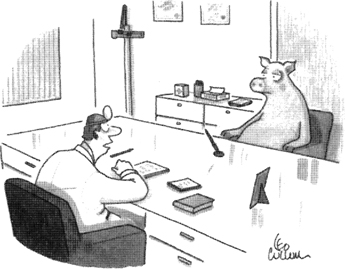
In my practice, I prefer to treat the whole hog.
The New Yorker Collection 1996 Leo Cullum from cartoonbank.com. All Rights Reserved.
Introduction
I am only one; but still I am one. I cannot do everything, but still I can do something; I will not refuse to do the something I can do.
Helen Keller
Deeds shape the doer.
Anonymous
G ood relationships enhance health and well-being. We have written Lifeskills to help you achieve this. Our approach grows out of both professional and personal experiences.


